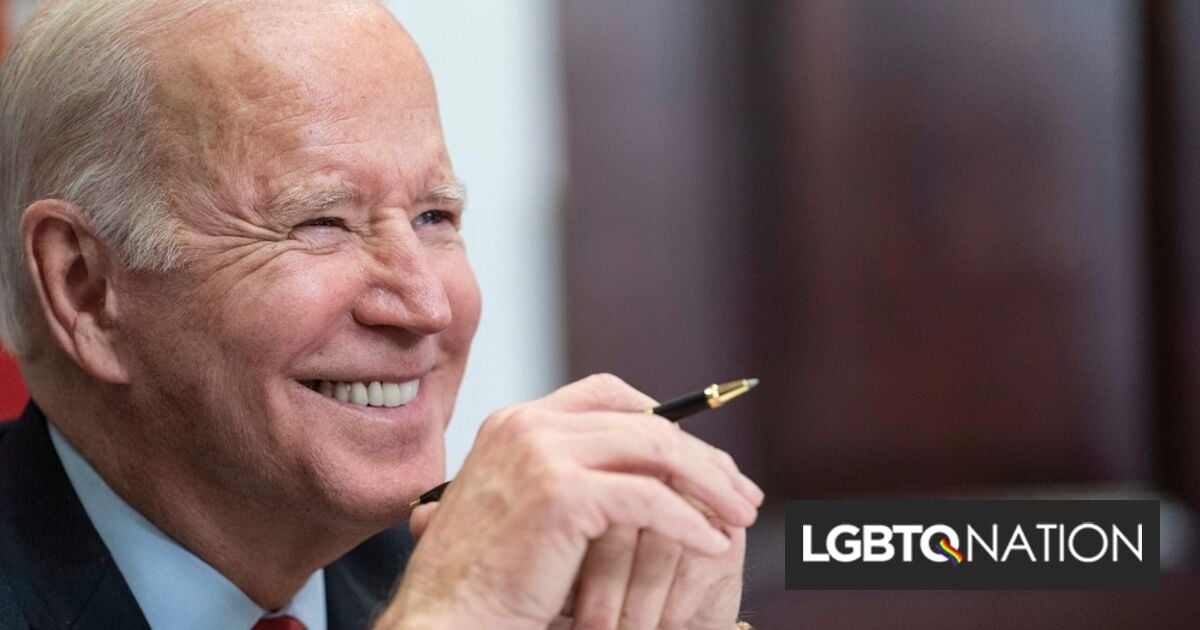In commemoration of the upcoming Transgender Day of Visibility (TDOV), President Joe Biden issued a statement praising trans people’s contributions to society and describing actions his administration has taken to counter transphobic bullying and extremism. Additionally, many members of Biden’s Department of Health and Human Services (HHS) also issued their own statements affirming that community health depends on supporting trans people too.
“Transgender Americans are part of the fabric of our Nation,” Biden wrote in his statement. “Whether serving their communities or in the military, raising families or running businesses, they help America thrive. They deserve, and are entitled to, the same rights and freedoms as every other American, including the most fundamental freedom to be their true selves.”



I get why people are so freaked out about voting third party, especially when mass political actions like voting don’t seem to handle nuance well. So advocating a simple slogan like “vote third party” might be irresponsible, but people seem almost irrationally afraid of third party voting in contexts where it should be entirely rational to vote third party.
For example, in a swing state it’s clearly useful to vote for the Lesser Evil (in recent U.S. elections that would be the Democrats, of course). But in states where there is a supermajority and there is almost no chance the state will flip, for example California which will certainly go to the Democrats or Arkansas which will go Republican, voting third party becomes helpful because it might enable the third party to receive federal funding.
There are various objections I have considered to this strategy, the one I think that comes up immediately is that if you vote third party it takes a vote that might otherwise contribute to changing the status of a state as stronghold or swing state, basically those margins matter and you should always be pushing the margin even if not likely to make a difference (just on the slim chance it does make a difference).
In that instance I think it’s just a matter of weighing the good: does the good from voting for the third party justify the slight risk of not being part of an unexpected shift in votes? This is clearly contextual, see recent upsets in Georgia (who went to Biden in 2020) and Pennsylvania (who went to Trump in 2016). I think the responsibility is on the voter to research their state demographics and those probabilities and make a decision. If you want to do less work, sure, just vote for the Lesser Evil.
What I don’t understand is the kind of blind dogmatism that refuses to acknowledge that there even could be reasons to vote third party, and that doing so is wrong a priori.